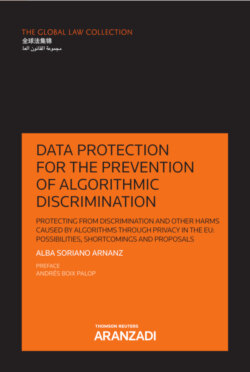Читать книгу Data protection for the prevention of algorithmic discrimination - Alba Soriano Arnanz - Страница 19
На сайте Литреса книга снята с продажи.
3.1.1.2. Healthcare
ОглавлениеThe use of big data and predictive models in healthcare undoubtedly has a great deal of positive effects seeing as, by using these new technological developments, it is now possible to know a disease will appear before it does and design personalised plans in order to prevent it or, at least, reduce its impact on the patient’s health.111
Private insurers manage an important part of healthcare. The extent to which these companies intervene in healthcare depends on the size of the welfare state in each country. However, even in countries such as Spain or the UK in which public healthcare is still predominant, there is a clear tendency to increasingly privatise medical services.112
The use of predictive medicine by healthcare insurance companies is gradually expanding due to the technological developments which allow, amongst other things, to predict a person’s chances of contracting certain illnesses,113 and adapt insurance primes accordingly. The use of algorithms in this sector is also largely the consequence of the amount of health-related information that is now available following the commercialisation of quantified-self devices and apps.114 These devices allow medical insurers to evaluate individuals’ general lifestyle, habits and health in order to determine whether they are at risk or have a certain propensity for needing or demanding a significant number of medical services.
